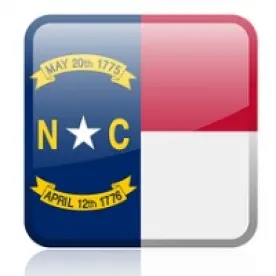It is hard to overstate the importance of an unlimited license to people who hold a professional or occupational license.
For most, the license is what allows that person to secure employment and provide for their families. Given the potential stakes, it continues to be surprising how many licensees, when faced with an investigation or disciplinary action from a North Carolina occupational or professional licensing board, choose to "go it alone."
Most license holders would be better served if they both understood the importance of the official record that is created in a disciplinary action and had legal representation in the matter. This series attempts to illustrate that by providing an overview of disciplinary hearings, explaining how the record in a disciplinary proceeding before a licensing board is created, and giving an overview of the appeals process.
It also addresses how a bad record, along with a licensee's failure to follow the procedural requirements of the appeals process, can limit the professional's opportunity to obtain an outcome on appeal that is more favorable to their career and livelihood than the disciplinary action being appealed.
The Appeals Process
License holders are generally entitled to judicial review of the board's decision. The licensee must file a petition for judicial review within 30 days after being served with a copy of the board's written decision. This deadline is generally non-negotiable and is one of the key points that licensees often overlook.
The petition must be filed in the superior court of the county where the license holder resides. Failure to file the petition timely operates as a waiver to the licensee's right to judicial review, but the court may accept an untimely petition if good cause for its tardiness is shown. Even if good cause is demonstrated, the court is not required to accept a petition for judicial review that was not filed within the requisite timeframe.
The required contents of the petition are set by North Carolina law, which requires that the petition expressly state the license holder's objections to the board's decision or its procedures and the relief the licensee seeks.
It is important for a licensee to note that the board's decision – and its impact on the licensee – are not automatically held in abeyance or stayed by asking a court to review the board's decision. In other words, the disciplinary action the board has ordered remains in force while the appeal moves forward unless the court says otherwise. In order to stop the enforcement of the board's decision while the appeal is pending, the licensee must ask the court that's reviewing the board's decision for an order that suspends enforcement of the decision. It is within the court's discretion whether or not to postpone enforcement of the decision.
License holders should also note that the ability to present evidence in the appeal that was not part of the record of the hearing before the board is limited. If the omitted evidence could have reasonably been presented at the hearing before the board, the court will not allow the evidence to be presented for the first time on appeal. This is another key point that people often miss, and why having professional assistance during the disciplinary hearing is invaluable.
If for some reason, the evidence could not have been presented, and the court is satisfied that the evidence is material to the issues and is not simply cumulative of what was presented to the board, the court may remand the matter back to the board to consider that evidence.
By law, appeals of a board's decision are reviewed and determined by a judge, not a jury. In conducting its review, the court's decision as to what relief the license holder is entitled, if any, must be based on the court's review of the board's decision and the official record prepared by the board.
The options available to the court in ruling on the appeal include:
-
affirming the board's decision,
-
remanding the matter for further proceedings,
-
reversing the board's decision, or
-
modifying the board's decision.
In order to reverse or modify the decision, the court must conclude that the board's findings, inferences, conclusions, or decision were unconstitutional, exceeded the board's authority or jurisdiction, were made based on an unlawful procedure, were affected by an error of law, were unsupported by substantial, admissible evidence included in the official record of the hearing, or were arbitrary, capricious, or constitute an abuse of discretion.
When a license holder seeks a reversal or modification of the board's decision on the ground that the decision was unconstitutional, exceeded the board's authority or jurisdiction, was made based on an unlawful procedure, or was affected by an error of law, the court conducts what is called a 'de novo' review. This means the court will review the evidence 'anew' without giving deference to the board's findings.
When a license holder seeks a reversal or modification of the board's decision on the ground that the decision was unsupported by substantial, admissible evidence included in the official record of the hearing, or was arbitrary, capricious, or constituted an abuse of discretion, the court is required to conduct its review under the 'whole record' standard. This means the court will look at all the evidence in the official record of the hearing to determine if the board made a rational decision that was supported by admissible evidence submitted during the hearing. If the reviewing court concludes the board made a rational decision and the decision is supported by admissible evidence, the reviewing court has to uphold the board's decision even if the evidence might also support a different result.
Once the superior court has decided the matter, either party to the review proceeding (the licensee or the North Carolina occupational or professional licensing board) may further appeal the matter to the North Carolina Court of Appeals.
The scope of review applied by the Court of Appeals is the same as it is for the superior court. The Court of Appeals reviews questions of law 'de novo' and questions of fact using the 'whole record' test. For issues reviewed under the first standard, the Court of Appeals is not bound by the findings of the superior court and can freely substitute its own judgment for that of the superior court. When an issue is decided under the second standard, the Court of Appeals must uphold the superior court's decision if the findings of fact made by the superior court are supported by substantial evidence.
Conclusion
This article outlined the general procedure for appealing disciplinary actions of North Carolina occupational or professional licensing boards. In several key areas, licensees who choose to move through this process without legal representation risk making mistakes that become very difficult to remedy, and in some cases, simply cannot be overcome.





 />i
/>i
